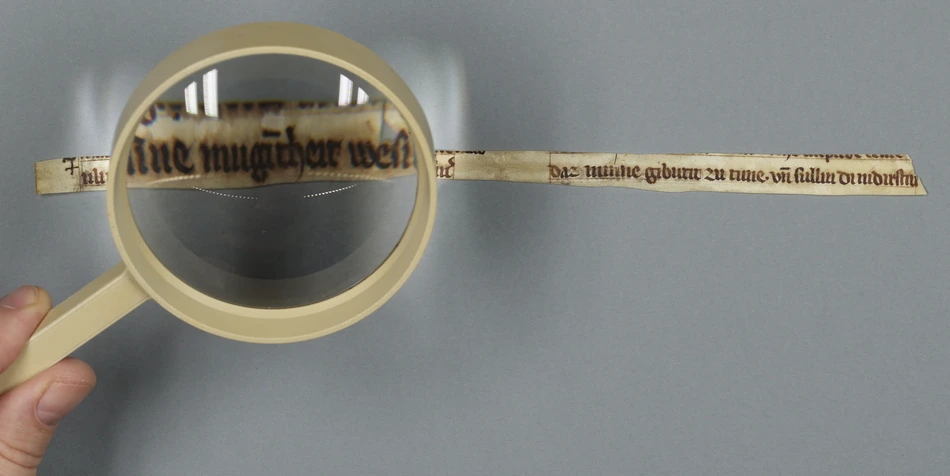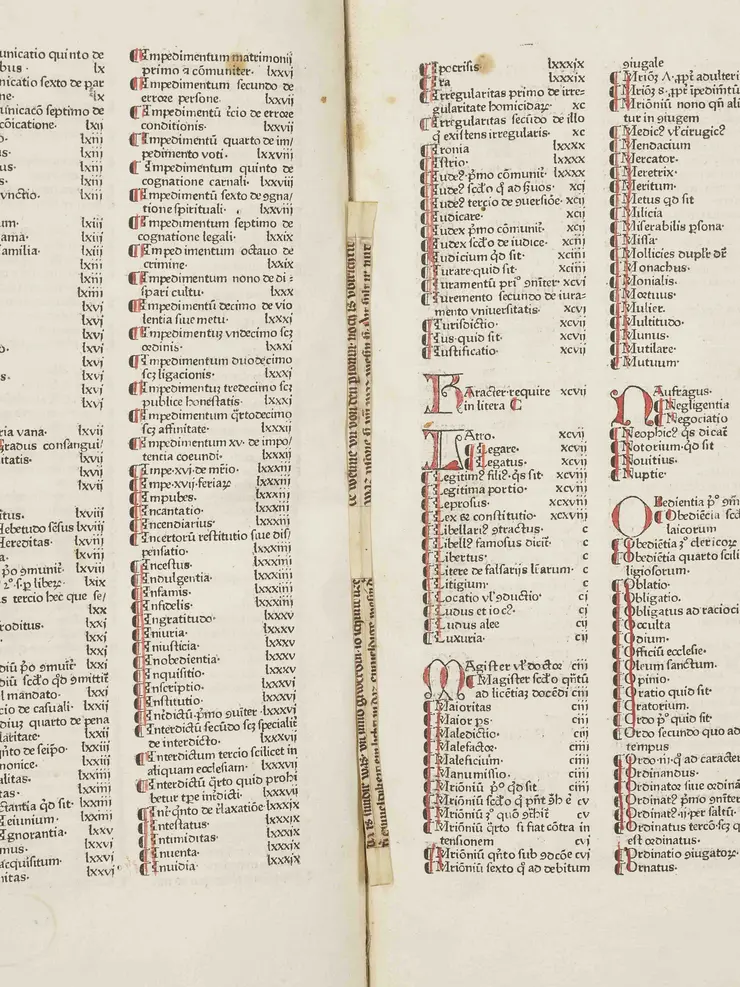The manuscript was written around 1300 in Thuringia, at the same time that Eckhart was working at the Dominican monastery in Erfurt (1294–1310). The fragments thus lead us for the first time into the immediate environment of the important theologian and mystic, whose Philosophy continues to have a great impact today. Here, experts can become acquainted with a particularly widespread and intellectually provocative Eckhart text, which was probably changed by the author himself as well as many times later, at a very early stage of transmission.
Oldest certificate of Meister Eckhart's work discovered
"Such 'discoveries' are the dream of researchers and librarians," says Dr Anne Lipp, Director of Leipzig University Library, "and as always, they are the result of in-depth indexing and scientific research into already known holdings. This case is one of a series of significant finds at our manuscript centre and illustrates very well how scholarly interest in knowledge and basic library work productively intertwine."
Since 2014, a project of the UBL Manuscript Centre has documented that two strips of parchment with a theological-mystical text in German were reused as bookbinding material in a volume with a 15th century print. Now, Dr Christoph Mackert, head of the Manuscript Centre, and his team have been able to assign the find: The parchment fragments contain excerpts from a very widespread text which, according to the latest findings, goes back to Eckhart and is known under the title 'Von zweierlei Wegen'. On an originally second page, lines from a text on knowledge and ignorance, which so far cannot be determined in more detail, are recognisable – an unknown Eckhart text?
The spectacular thing about the new find is its age and its region of origin: on the basis of the writing characteristics, the manuscript remains can be dated to the period around 1290–1310, the dialectal colouring of the written German shows that the manuscript was written in Thuringia. The Leipzig fragments are thus not only the oldest known textual find on Meister Eckhart, but were also written in the immediate vicinity of his person. No other manuscript testimony comes so close to Eckhart's person: from 1294 to 1310, Eckhart worked in the Dominican monastery in Erfurt, first as prior of the monastery, later as the person responsible for the Dominican religious province of Saxonia.
In evaluating the find, the UBL Manuscript Centre is working intensively with the "Meister Eckhart" research centre at the Max-Weber-Kolleg of the University of Erfurt, where Dr Jana Ilnicka is also involved in classifying the find, as well as with the President of the Meister Eckhart Society, Professor Freimut Löser of the University of Augsburg. For Professor Markus Vinzent, the head of the "Meister Eckhart" research centre in Erfurt, the Leipzig fragments are "quite an exciting case and so important precisely because they contain central parts from the Eckhart sermon that were deleted in later tradition and which are now proven by the new fragments to be old and to belong to early Eckhart." Professor Freimut Löser considers "a contemporaneous certificate to Eckhart's sermons in Thuringia as Prior in Erfurt or as Provincial of Saxonia to be a brilliant result, allowing us deep insights into his Erfurt activity."
Dr Christoph Mackert will be able to present the new find to experts on 14 September at the 28th conference of the Wolfram von Eschenbach Society at the University of Fribourg (Switzerland). The two fragment strips with the signature German Fragments 86a are already available online worldwide via the UBL's digital presentation system: https://digital.ub.uni-leipzig.de/object/viewid/0000051482.



